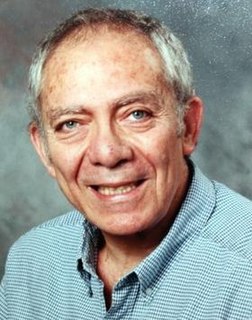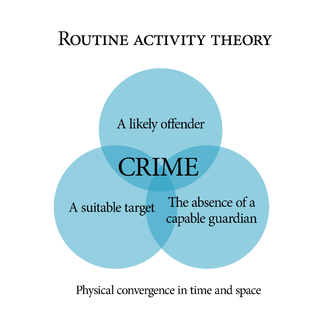
More Guns, Less Crime is a book by John Lott that says violent crime rates go down when states pass "shall issue" concealed carry laws. He presents the results of his statistical analysis of crime data for every county in the United States during 29 years from 1977 to 2005. Each edition of the book was refereed by the University of Chicago Press. The book examines city, county and state level data from the entire United States and measures the impact of 13 different types of gun control laws on crime rates. The book expands on an earlier study published in 1997 by Lott and his co-author David Mustard in The Journal of Legal Studies and by Lott and his co-author John Whitley in The Journal of Law and Economics, October 2001.

A moral panic is a widespread feeling of fear, often an irrational one, that some evil person or thing threatens the values, interests, or well-being of a community or society. It is "the process of arousing social concern over an issue," usually perpetuated by moral entrepreneurs and the mass media, and exacerbated by politicians and lawmakers.

Stanley Cohen was a sociologist and criminologist, Professor of Sociology at the London School of Economics, known for breaking academic ground on "emotional management", including the mismanagement of emotions in the form of sentimentality, overreaction, and emotional denial. He had a lifelong concern with human rights violations, first growing up in South Africa, later studying imprisonment in England and finally in Palestine. He founded the Centre for the Study of Human Rights at the London School of Economics.
Crime science is the study of crime in order to find ways to prevent it. Three features distinguish crime science from criminology: it is single-minded about cutting crime, rather than studying it for its own sake; accordingly it focuses on crime rather than criminals; and it is multidisciplinary, notably recruiting scientific methodology rather than relying on social theory.

Critical criminology is a theoretical perspective in criminology which focuses on challenging traditional understandings and uncovering false beliefs about crime and criminal justice, often but not exclusively by taking a conflict perspective, such as Marxism, feminism, political economy theory or critical theory. Critical criminology frequently takes a perspective of examining the genesis of crime and nature of 'justice' within the social structure of a class and status inequalities. Law and punishment of crime are viewed as connected to a system of social inequality and as the means of producing and perpetuating this inequality. Critical criminology also seeks to delve into the foundations of criminological research to unearth any biases.

The feminist school of criminology is a school of criminology developed in the late 1960s and into the 1970s as a reaction to the general disregard and discrimination of women in the traditional study of crime. It is the view of the feminist school of criminology that a majority of criminological theories were developed through studies on male subjects and focused on male criminality, and that criminologists often would "add women and stir" rather than develop separate theories on female criminality.

Routine activity theory is a sub-field of crime opportunity theory that focuses on situations of crimes. It was first proposed by Marcus Felson and Lawrence E. Cohen in their explanation of crime rate changes in the United States between 1947 and 1974. The theory has been extensively applied and has become one of the most cited theories in criminology. Unlike criminological theories of criminality, routine activity theory studies crime as an event, closely relates crime to its environment and emphasizes its ecological process, thereby diverting academic attention away from mere offenders.
Ronald Weitzer is a sociologist specializing in criminology and a professor at George Washington University, known for his publications on police-minority relations and on the sex industry.
David Downes is a British sociologist and criminologist and is Professor Emeritus of Social Administration at the London School of Economics.

Cultural criminology is a subfield in the study of crime that focuses on the ways in which the "dynamics of meaning underpin every process in criminal justice, including the definition of crime itself." In other words, cultural criminology seeks to understand crime through the context of culture and cultural processes. Rather than representing a conclusive paradigm per se, this particular form of criminological analysis interweaves a broad range of perspectives that share a sensitivity to “image, meaning, and representation” to evaluate the convergence of cultural and criminal processes.
Sir Anthony Edward Bottoms FBA is a British criminologist. He is life fellow at Fitzwilliam College, Cambridge, having previously been a Wolfson Professor of Criminology at the Institute of Criminology in the Faculty of Law at the University of Cambridge from 1984 to 2006 and until December 2007 a professor of criminology jointly at the universities of Cambridge and Sheffield.
Radical criminology states that society "functions" in terms of the general interests of the ruling class rather than "society as a whole" and that while the potential for conflict is always present, it is continually neutralised by the power of a ruling class. Radical criminology is related to critical and conflict criminology in its focus on class struggle and its basis in Marxism. Radical criminologists consider crime to be a tool used by the ruling class. Laws are put into place by the elite and are then used to serve their interests at the peril of the lower classes. These laws regulate opposition to the elite and keep them in power.

Criminology is the study of crime and deviant behaviour. Criminology is an interdisciplinary field in both the behavioural and social sciences, which draws primarily upon the research of sociologists, political scientists, economists, psychologists, philosophers, psychiatrists, biologists, social anthropologists, as well as scholars of law.
David L. Weisburd, is an Israeli/American criminologist who is well known for his research on crime and place, policing and white collar crime. Weisburd was the 2010 recipient of the prestigious Stockholm Prize in Criminology, and was recently awarded the Israel Prize in Social Work and Criminological Research, considered the state's highest honor. Weisburd holds joint tenured appointments as Distinguished Professor of Criminology, Law and Society at George Mason University. and Walter E. Meyer Professor of Law and Criminal Justice in the Institute of Criminology of the Hebrew University Faculty of Law, At George Mason University Weisburd was founder of the Center for Evidence-Based Crime Policy and is now its executive director. Weisburd also serves as Chief Science Advisor at the National Police Foundation in Washington, D.C., and chair of its Research Advisory Committee. Weisburd was the founding editor of the Journal of Experimental Criminology, and is now the general editor of the Journal of Quantitative Criminology.
Green criminology is a branch of criminology that involves the study of harms and crimes against the environment broadly conceived, including the study of environmental law and policy, the study of corporate crimes against the environment, and environmental justice from a criminological perspective.
Christopher J. Uggen is a Regents Professor and Distinguished McKnight Professor of sociology and law at the University of Minnesota, where he also holds the Martindale Chair in Sociology. Uggen is best known for his work on public criminology, desistance from crime and the life course, crime in the workplace, sexual harassment, and the effects of mass incarceration, including Felon disenfranchisement, re-entry, recidivism, and inequality.
David Philip Farrington is a British criminologist, forensic psychologist, and emeritus professor of psychological criminology at the University of Cambridge, where he is also a Leverhulme Trust Emeritus Fellow. In 2014, Paul Hawkins and Bitna Kim wrote that Farrington "is considered one of the leading psychologists and main contributors to the field of criminology in recent years."
Grant Duwe is an American criminologist and research director at the Minnesota Department of Corrections, as well as a non-visiting scholar at Baylor University's Institute for Studies of Religion. Duwe holds a bachelor's degree from the University of Kansas and a Ph.D. in Criminology and Criminal Justice from Florida State University.
Denise Claire Gottfredson is an American criminologist and professor in the Department of Criminal Justice and Criminology at the University of Maryland, College Park. She is an expert on school violence and juvenile delinquency. She is recognized for her research applying the techniques of program evaluation to certain crime prevention initiatives, such as Drug Abuse Resistance Education, the Strengthening Families Program, and the Baltimore City Drug Treatment Court. She has also researched the effects of school resource officers on schools, finding that such officers spend an average of about half of their time engaged in law enforcement activities. She served as vice president of the American Society of Criminology (ASC) from 2005 to 2006, and as editor-in-chief of its journal, Criminology, from 2005 to 2011. She received the ASC's August Vollmer Award in 2016. She is a fellow of the ASC and of the Academy of Experimental Criminology.

Public criminology is an approach to criminology that disseminates criminological research beyond academia to broader audiences, such as criminal justice practitioners and the general public. Public criminology is closely tied with “public sociology”, and draws on a long line of intellectuals engaging in public interventions related to crime and justice. Some forms of public criminology are conducted through methods such as classroom education, academic conferences, public lectures, “news-making criminology”, government hearings, newspapers, radio and television broadcasting and press releases. Advocates of public criminology argue that the energies of criminologists should be directed towards "conducting and disseminating research on crime, law, and deviance in dialogue with affected communities." Public criminologists focus on reshaping the image of the criminal and work with communities to find answers to pressing questions. Proponents of public criminology see it as potentially narrowing "the yawning gap between public perceptions and the best available scientific evidence on issues of public concern", a problem they see as especially pertinent to matters of crime and punishment.






